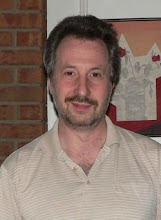
Max Birbraer. Photo by "Okna" Tel-Aviv 2000. Nikale1 Archives
I happened to know Max Birbraer and his dad years ago when they came first to Israel and Maxim was only sixteen. They moved to Canada, so did I. As result we have lost contact. This week I was more than glad to find this article published by International Hockey Net.
NIKALE1
The first Israeli ever selected in the NHL Draft sits down with Internationalhockey.net to discuss his career. Birbraer has played professionally in the American Hockey League, the ECHL, the Central League, the British Elite League, the Russian Vyshaya League (second highest pro league in Russia & the former Soviet Union), and Germany’s Bundesliga (second highest pro league in Germany).
Israeli international Max Birbraer was the first Israeli citizen ever selected in the NHL draft (New Jersey Devils, 3rd round, 2000; the second, Ethan Werek, is a dual Canadian-Israeli and was selected in the second round, 2009, by the New York Rangers). Birbraer has played professionally in the American Hockey League, the ECHL, the Central League, the British Elite League, the Russian Vyshaya League (second highest pro league in Russia & the former Soviet Union), and Germany’s Bundesliga (second highest pro league in Germany).
Birbraer is a Russian Jew, born in Kazakhstan, who originally came to love hockey as a young boy due to his grandfather’s involvement with, and passion for, the sport. Birbraer trained as a youngster in the Torpedo club’s system in his native Ust-Kamenogorsk, the hockey capital of Kazakhstan. He moved with his family to Israel as a teenager, and, after having played for Israel’s junior & senior teams in various events, moved to Canada to further his hockey career. He was drafted, as indicated, by the NHL’s New Jersey Devils in 2000, and, while he never played in the NHL, has forged an interesting and varied professional career in hockey spanning the globe. Although Russian, Birbraer plays a Canadian power forward style of hockey.
Internationalhockey.net: Max, thanks for taking the time to speak with me today. The first question I have for you concerns Kazzinc-Torpedo Ust-Kamenogorsk. You started this past season (2008-2009) with your hometown club, leaving the British Elite League’s Cardiff Devils, where you were a league star for two seasons and very popular with the fans. What led you to make the move?
Max Birbraer: Always a pleasure to speak to you, Marc. I made the move for several reasons. I felt, professionally, that it would be a challenge to play in the Vyshaya League. It is a very high level of play. Also, Torpedo is my hometown team, as you know. I followed Torpedo as a boy. My father and grandfather are friendly with one of the owners of the club, who happens to be Israeli (Editor’s Note: with a similar background to the Birbraers in that he is a Russian Jew from Kazakhstan), so I had a connection there. Finally, the money was too good to turn down. Hockey is my career, and I’m not getting any younger (Editor’s Note: Birbraer is 28 years of age), so I need to make the most of my chances to make a living from it.
IHN: What were your impressions of the Vyshaya League compared to leagues that you have competed in during prior seasons? How could you describe it to North Americans & Britons who are completely unfamiliar with it in terms of level of play?
MB: As I said, the players are all very skilled. The hockey is a completely different style than what is seen in North America and in the British Elite League, which also has a style similar to North America. It is much more technical, and less physical. There is less dump and chase and it is more of a puck control game. As far as level or strength, I’d say it is above the ECHL & British Elite League by a fair amount. It’s definitely not as strong a league as the AHL, but it’s not far behind, in my opinion.
IHN: It is well documented that your family experienced anti-Semitism in Kazakhstan during your childhood, and that it was a major factor in your family’s leaving for Israel. With that in mind, were you given trouble by the Torpedo fans, or were you welcomed by them? Did you experience any anti-Semitism during your time with Torpedo?
MB: We did experience it when I was younger, before we left for Israel. However, the media has always overblown the amount of prejudice that I and my family encountered. It wasn’t minor, I don’t want to minimize it, but it also wasn’t so bad that we had to leave Kazakhstan over it. We basically left for Israel because Jews have a right to get citizenship there, and it offered my family a better life. As for my return, I was welcomed with open arms by the Torpedo fans, management, the media, and the public in general. In fact, I was treated very, very well, and my return was treated like a big story. Everyone knows I’m Jewish, but I didn’t encounter a single problem because of that last season. Kazakhstan still has some anti-Semitism, I’m sure, but it has gotten a lot better. The government there actually protects and helps the Jewish community. My experience with everyone was totally positive. And the standard of living is much better than it was before I left. It’s still not like in the West, but it’s getting close.

IHN: You seemed to struggle quite a bit in the early stages of the season with Torpedo – why was that?
MB: It took a while for me to adjust to the Vyshaya League’s style and level of play. As I said, it’s the highest level I’ve played since my time in the AHL, and the style of play is completely different than North America and Britain, and to be honest, it didn’t suit my game very well.
IHN: But you did adjust. In fact, you went on a hot streak for a bit (Editor’s Note: Birbraer finished with 20 points on 5 goals & 15 assists in 34 games, with a +1 rating), and then, only 34 games into your time with Torpedo, you left the team. What happened?
MB: The global economic recession was felt even in Kazakhstan. The team’s corporate sponsors wanted all of the team’s imports, including me, to take a huge paycut of much more than 50%. Most of the imports left. I did too. I couldn’t afford to stay and play based on what they wanted to pay me if I had accepted the pay cut. Hockey is my career; I have to make a living. I wanted to stay with the team, but, like the other import guys, I couldn’t afford to take that kind of cut.
IHN: After leaving Torpedo, you finished the season with the Heilbronner Falken in the German Bundesliga. How did the offer from Heilbronner come? Why the German Bundesliga?
MB: Heilbronner was one of the teams my agent talked to after I had decided to leave Cardiff and try out other leagues. When I left Torpedo, they were still interested, so I went to Germany.
IHN: What were your impressions of the team, and your impressions of life in Germany? How were you welcomed there?
MB: Even though I joined the team late in the season, I was welcomed into the locker room right away by everybody. I like to think of myself as a guy who is easy to get along with, and as a hard working professional. So it definitely was easy to fit right in, and I did. Plus, the team had a bunch of really good guys, so that made it easy as well. Life in Germany is amazing. Everything is so clean and neat and well maintained. Everything is high end; the food, the accommodations, the medical care is the best I’ve experienced anywhere in the world. Plus, it is absolutely beautiful, and the people were very welcoming. I was actually pleasantly surprised. In fact, at one playoff game, there were these two random Falken fans – one was waving an Israeli flag, and one at the other end of the rink was wearing an Israeli national team jersey from Ron Soreanu that must have been game used (laughs); where else would she have gotten that? She was trying to get my attention during warmups; I smiled at her, what else could I do (laughs)? Believe me, I didn’t expect to see that in the middle of Germany! But again, it was nice to see and I was pleasantly surprised.

Israel is a member of the IIHF since May 1, 1991
IHN: You produced pretty well in the Bundesliga (4 goals, 5 assists for 9 points in 16 games). Why not go back to Heilbronner for 2009-2010?
MB: The team didn’t offer me, or any of the other imports, a new contract. Ultimately, they didn’t think we did enough. To be honest, I think I could have played better than I did. It’s a shame, really. Germany is awesome, and the league is high quality – maybe a tiny bit below the Vyshaya League. Much more physical, though, more like what I’m used to.
IHN: You’re not playing for Israel at the 2009 World Jewish Cup. Why not?
MB: Once again, I got hurt and needed surgery. I actually had two surgeries: one for a double sports hernia, and arthroscopic knee surgery. They both went well, and I should be fine for the start of the new season.
IHN: Speaking of the new season, British fans – specifically Cardiff fans – are pretty excited about 2009-2010.
MB: Yeah, I re-signed with the Cardiff Devils. I loved my two seasons there. I played very well there. I really enjoy the team there, and the fans, and just the whole city of Cardiff. It’s like a second home to me. Plus, my girlfriend is there. She was a big factor in me coming back. She wasn’t too thrilled with me going to Kazakhstan (laughs). In Germany it was a little easier to see her, but…..like I said, Cardiff is home to me.



















No comments:
Post a Comment